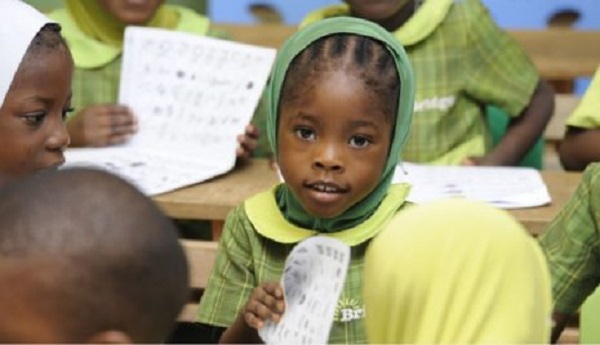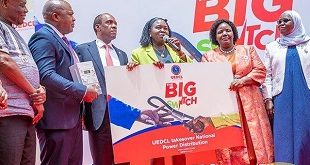
Study says child’s background does not affect performance in school
Kampala, Uganda | IAN KATUSIIME | A new report by UK’s Department for International Development (DFID) in Nigeria shows full equality of learning in Bridge schools’ classrooms, regardless of a child’s socioeconomic background.
The report was based on Bridge schools in Nigeria, which has implications for the same chain of schools in Uganda with 63 academies in remote parts of the country where children from rural communities are able to attain an education.
Titled ‘Learning in Lagos’, the report shows that factors such as parental income, education or language spoken at home had no effect on Bridge students’ academic performance in Lagos Nigeria. But this was not the case in the schools which were compared to Bridge.
One of the report authors, Alina Lipcan, from Oxford Policy Management, said: “Good management matters, we find a strong correlation with better learning outcomes. We would recommend more programmes focused on better management, so that more schools and pupils can benefit.”
The report states: “In literacy, students from better socio-economic backgrounds have higher learning achievement in private and public schools, but not at Bridge schools”.
Experts stated that the DFID findings contradict decades of global education research trends that demonstrate family background matters more than the school a child attends, in relation to levels of learning.
Bridge Uganda Country Director Morrison Rwakakamba welcomed the findings of the report in a statement saying there is no learning gap at Bridge schools. “This is a big deal. This study validates our methods, which ensure that all teachers have high expectations for every pupil, irrespective of their families’ income, prior educational attainment, or which language they speak at home.”
He added that Bridge schools are places of equal opportunity and equal learning benefits for all types of children, and especially for the poor.
Rwakakamba stressed that the “independent DFID report shows that Bridge is helping children from poor families to learn, improving access to quality education, and enabling the best overall learning attainment in the local communities we serve.”
A DFID spokesperson stated the study will contribute to the growing body of evidence on the role of private sector provision of education in sub-Saharan Africa.
The study was authored by Oxford Policy Management and the University of Sussex and funded, commissioned and published by DFID.
It surveyed over 100 schools including 37 Bridge schools, 38 public schools and 44 other low fee schools. The study was conducted between Jan 15 and Feb.4 at the beginning of the second term of Primary 2 year in Lagos, Nigeria.
 The Independent Uganda: You get the Truth we Pay the Price
The Independent Uganda: You get the Truth we Pay the Price



